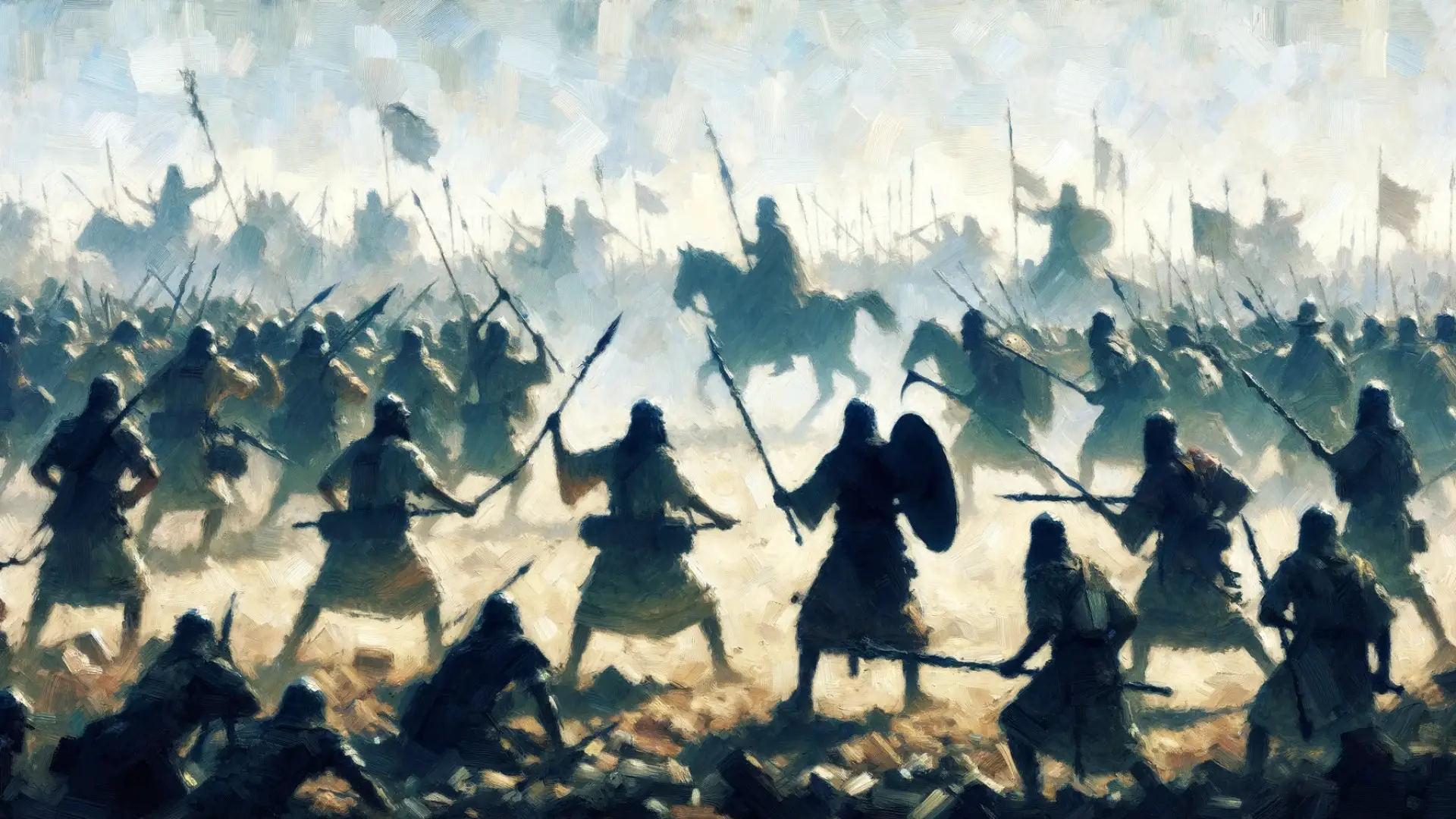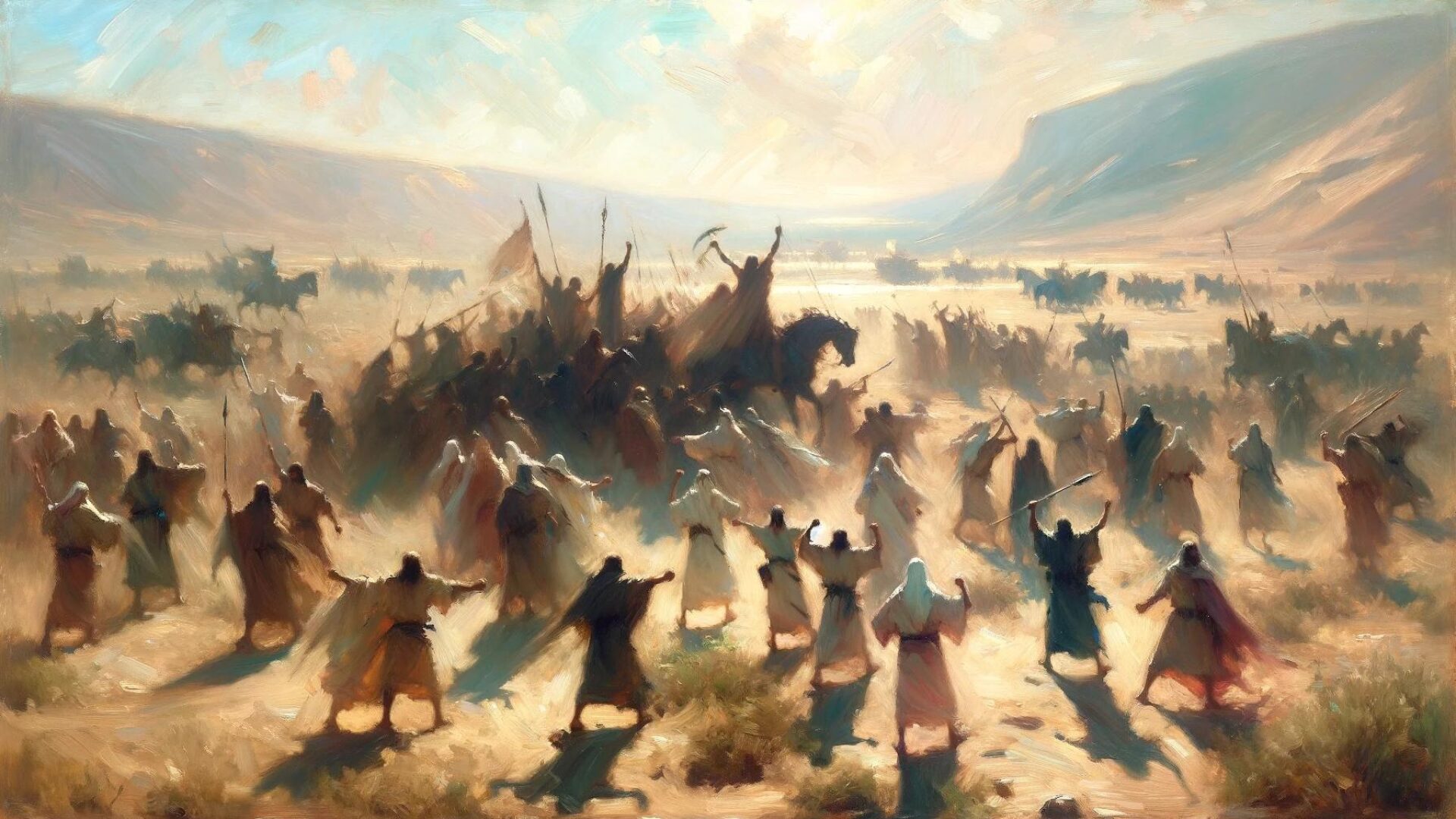1 Samuel 4 Commentary
1 Samuel 4 unfolds a series of pivotal events in Israel’s history, marked by conflict, loss, and spiritual turmoil.
This chapter narrates the Israelites’ disastrous encounter with the Philistines, leading to a crushing defeat and the loss of thousands, while detailing the controversial decision to bring the Ark of the Covenant into battle, a move that ends in its capture by their enemies.
The chapter further chronicles the tragic demise of Eli, the priest, and his sons, signaling a significant shift in Israel’s spiritual leadership.
These events not only shaped the immediate future of Israel but also echoed through their collective consciousness, influencing their faith and identity.
1 Samuel 4:1-2, The Battle Between Israel and the Philistines
As 1 Samuel 4 begins, the Israelites face off against their long-standing enemies, the Philistines. The setting is near Ebenezer, a place that will later gain significant importance. What stands out in this section is the outcome of the battle: the Israelites are defeated with a significant loss of life.
The mention of four thousand Israelite soldiers dying (1 Samuel 4:2) is not just a numerical detail; it reflects the magnitude of their defeat and sets a somber tone for the rest of the chapter. This defeat raises questions about Israel’s military and spiritual state, suggesting that the loss is not just physical but also symbolic of deeper issues within the nation.
1 Samuel 4:3-11, The Ark of the Covenant Brought to Battle and Captured
The Ark of the Covenant’s role in this narrative is pivotal. Initially, the Israelites bring the Ark to the battlefield, hoping it will ensure their victory (1 Samuel 4:3). This action, driven by superstition rather than faith, represents a misunderstanding of the Ark’s significance and God’s presence.
The capture of the Ark by the Philistines (1 Samuel 4:11) is a dramatic turn of events, symbolizing not just a military defeat but a profound spiritual loss for Israel.
The Ark, central to Israel’s relationship with God, now in enemy hands, signifies a low point in Israel’s history, reflecting their spiritual decline and the consequences of misplacing their trust.
1 Samuel 4:12-18, The Death of Eli and His Sons
Eli’s death (1 Samuel 4:18) is a culmination of previous warnings about the fate of his house due to his sons’ wickedness. His reaction upon hearing the Ark’s capture – falling backward, breaking his neck, and dying – is a tragic yet fitting end to his troubled tenure as a priest.
The death of his sons, Hophni and Phinehas (1 Samuel 4:11), fulfills the earlier prophecy about the judgment on Eli’s family (1 Samuel 2:34).
This segment is crucial as it marks the end of an era for Israel’s priesthood and leadership, signaling a shift in how God will interact with His people going forward.
1 Samuel 4:19-22, The Birth of Ichabod and the Death of Eli’s Daughter-in-Law
The birth of Ichabod and the death of Eli’s daughter-in-law are laden with symbolism.
The name ‘Ichabod,’ meaning “no glory,” given by the dying mother (1 Samuel 4:21), encapsulates the state of Israel at this point – a nation where the glory of God has departed due to their unfaithfulness and the loss of the Ark. This narrative segment, therefore, is not just about personal tragedy but also about a national crisis.
The mother’s last words, lamenting the departure of glory from Israel, poignantly express the profound spiritual and political turmoil experienced by the nation.





